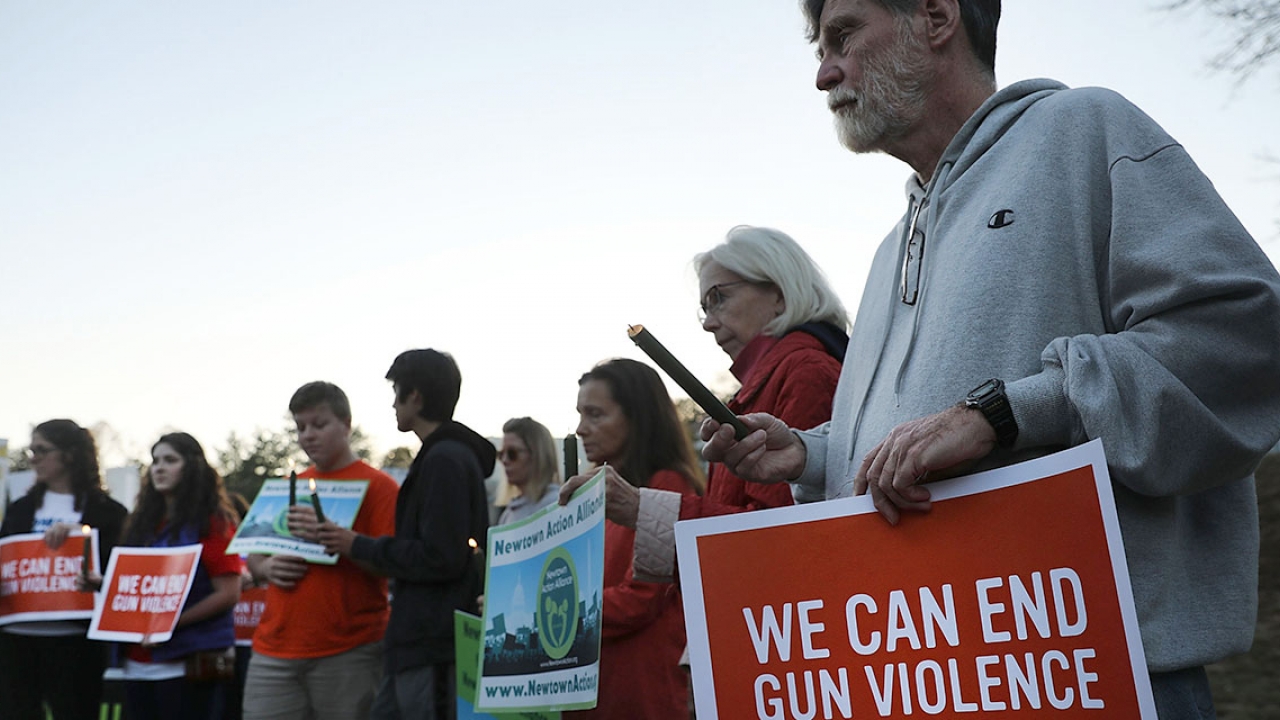Wellesley Faculty Find that a Jump in Gun Sales and Accidental Gun Deaths Followed the 2012 Sandy Hook Shootings

A new study by Wellesley professors Phillip Levine, Katharine Coman and A. Barton Hepburn Professor of Economics, and Robin McKnight, associate professor of economics, has been receiving widespread media coverage—both locally and nationally. Levine and McKnight co-authored a report entitled “Firearms and accidental deaths: Evidence from the aftermath of the Sandy Hook school shooting.” The report was published in Science and has been discussed by Newsweek, the Los Angeles Times, the Washington Post, Bloomberg, and U.S. News and World Report, as well as on NPR and WNYC's websites.
The Sandy Hook school shooting five years ago prompted a political response that led to significantly higher gun sales; this resulted in greater numbers of accidental deaths by firearms for both adults and children, according to the economists’ findings.
The research concluded that, in the wake of the December 14, 2012, Sandy Hook school shooting, the number of guns purchased in America spiked by 3 million compared with baseline levels, leading to 60 additional deaths related to firearms, 20 among children and 40 among adults.
The shooting at Sandy Hook claimed the lives of 20 children and six adults. It also stirred a vigorous national debate regarding gun control, including attempts to enact new legislation.
Levine and McKnight sought to better understand how this tragedy and the resulting debate affected people’s behavior surrounding guns. They analyzed Google Trends data between 2010 and 2014, finding that weekly search volumes for the terms “buy gun” and “clean gun” surged in the four months after the shooting—and particularly when President Obama spoke out about the need for new gun control legislation.
“At the exact time of any major development in that debate, including its conclusion in April of 2013,” Levine said, “we see obvious changes in searches. The political discussion clearly influenced online, gun-related activity.”
Levine and McKnight show that gun sales themselves spiked as a result. “When we examined gun sales data using background checks as proxy, McKnight said, “we found an additional 3 million guns were sold during this same four-month window, compared to baseline sales.”
The researchers then looked at mortality data at both the national and state levels over time, to understand how the resulting increase in exposure to guns might be related to accidental gun deaths.
“Those deaths jumped exactly at the same time as gun sales spiked,” McKnight said, “and even more so in the states where the spike in gun sales was bigger.” Their analysis shows that accidental deaths related to firearms also increased, by 27 percent in such deaths overall, and by 64 percent among children.
The authors concluded that the evidence indicates that the spike in gun exposure that followed the Sandy Hook school shooting increased the incidence of accidental firearm deaths.
“If guns were stored properly at all times,” Levine said,” we would not observe this result. It suggests that we should be concerned about how guns are stored in homes and consider legislation to improve it.”



